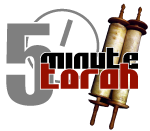
Mishpatim (“Laws/Ordinances”)
Shemot / Exodus 21:1-24:18
“…and eye for an eye, a tooth for a tooth, a hand for a hand, a foot for a foot; a burn for a burn, a wound for a wound, a bruise for a bruise.” (Exodus 21:24-25)
Probably one of the most frequently quoted, yet misapplied and misunderstood texts of the Torah would be the above text from our parashah. Those who do not study nor understand the Torah often site this passage as a justification of their misunderstanding of the justice of Hashem. They often pivot Hashem’s attribute of justice–as cursorily seen in the Hebrew Scriptures (the “Old Testament”)–against a cursory reading of the “grace” of the Apostolic Scriptures (the “New Testament”). In short, this passage is often used to place the God of the OT at odds with the one of the NT. The God of the OT is seen as cruel and vengeful. Yet the picture of Him in the NT is heavily skewed with mercy and grace (despite the numerous accounts of wrath and judgment found within the NT, particularly within Revelation).
These concepts, however, are based on false assumptions. We know that Hashem is both just and merciful throughout the canon of Scripture, and that there is no wavering on His part. But how should we understand our text, especially when juxtaposed against the teaching of the Master in Matthew 5, which says:
You have heard that it was said, ‘Eye for eye, and tooth for tooth.’ But I tell you, Do not resist an evil person. If someone strikes you on the right cheek, turn to him the other also. And if someone wants to sue you and take your tunic, let him have your cloak as well. If someone forces you to go one mile, go with him two miles. Give to the one who asks you, and do not turn away from the one who wants to borrow from you.
Matthew 5:38-42(NIV)
It appears that Yeshua is telling us that we need to disregard the injunction of the Torah and replace it with a new one. However, we must keep in mind that if he is telling us to set aside the laws of the Torah, then he could not have been Messiah. Instead of the Messiah, he would have been a sinner and a false prophet. We know that he was sent by the Father as the Messiah and upheld the Torah. Therefore we must understand the issue at hand.
First we must understand the context of the passage within the Torah. If we examine the text in context, we easily understand that this passage is not to be understood literally. If a person were to lose an eye, he would not demand the eye of his perpetrator, as is thought by the majority of those quoting the text. He was to receive compensation (monetary or otherwise) from the perpetrator equivalent to the damage. In the text, there are two specific examples of compensating for damages. One in regard to a miscarriage (v.22), and the other in regard to the damage of a tooth or eye (v. 26-27).
Next, we must understand the words of the Master. In his teaching he isn’t undermining the Torah. He is dealing with the issue of the heart. Although the Torah allows for us to be compensated, it is up to the (religious) court system to enact the compensatory laws. While our very nature would “demand” compensation, Yeshua tells us that we must not demand it. We uphold both the letter and the spirit of the Torah through ensuring compensation takes place for victims, while not taking it upon ourselves to defend our “rights.” Vengeance is not ours, but lies in the hands of the Almighty alone.
Similar Posts:
- Yeshua’s Use of “Good Eye”
- Binding & Loosing: From Torah to Yeshua
- Eating the Messiah
- New FFOZ Seminar Coming to Central Arkansas
- Colossians Commentary